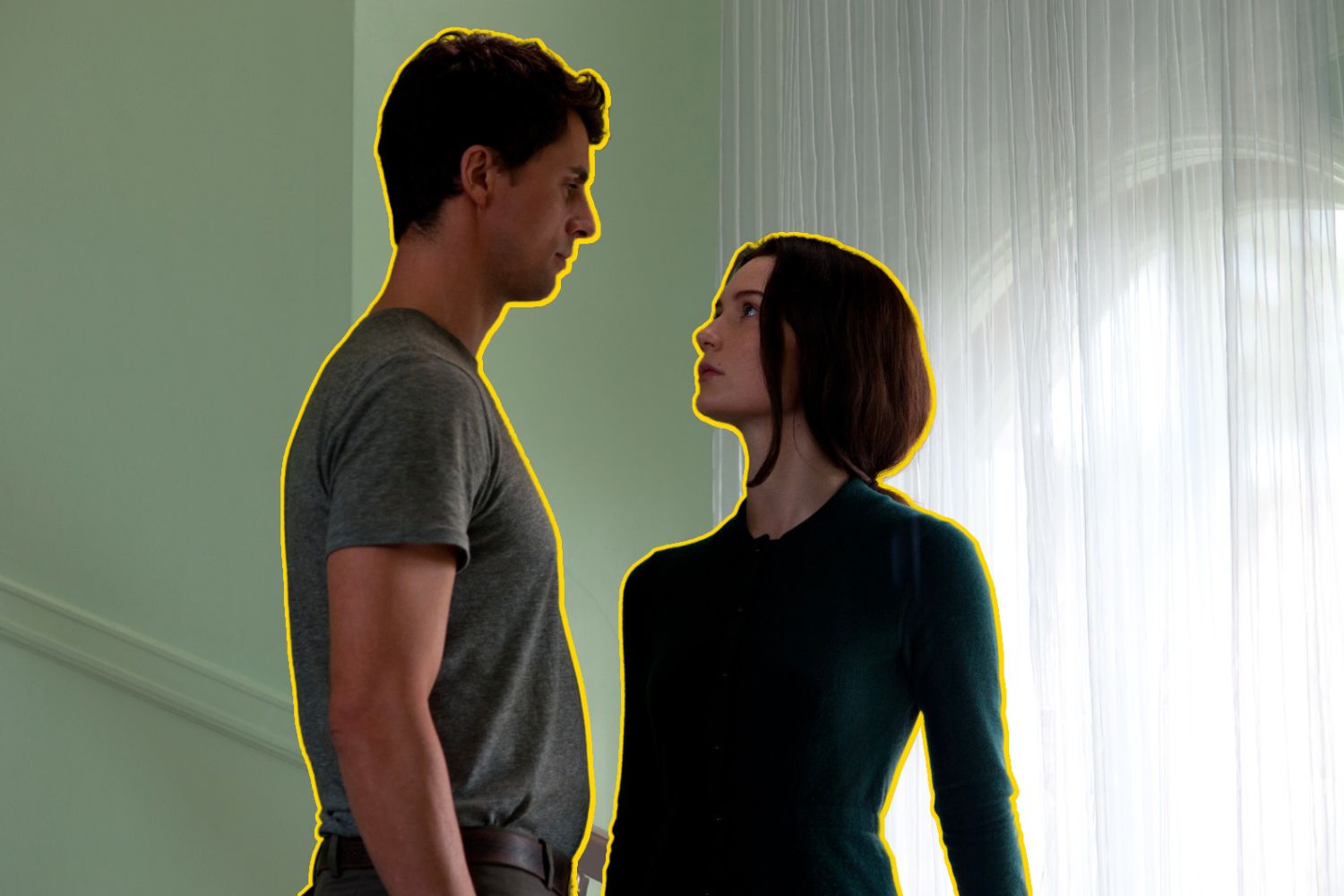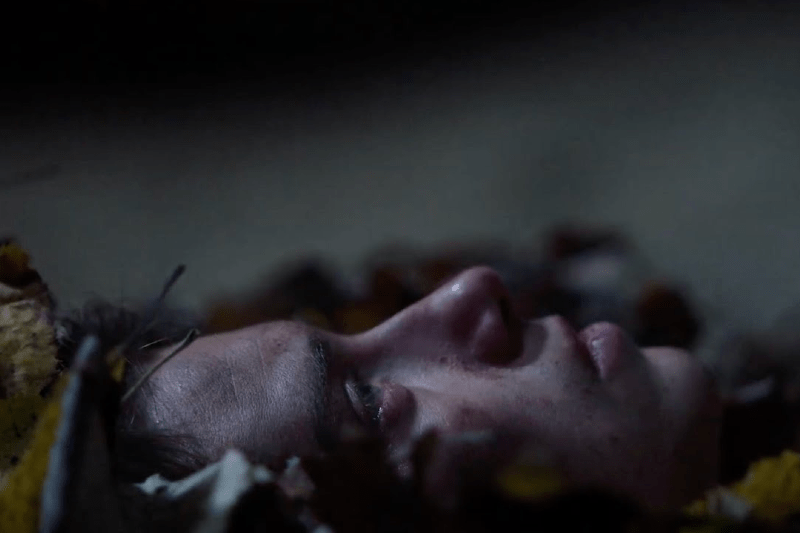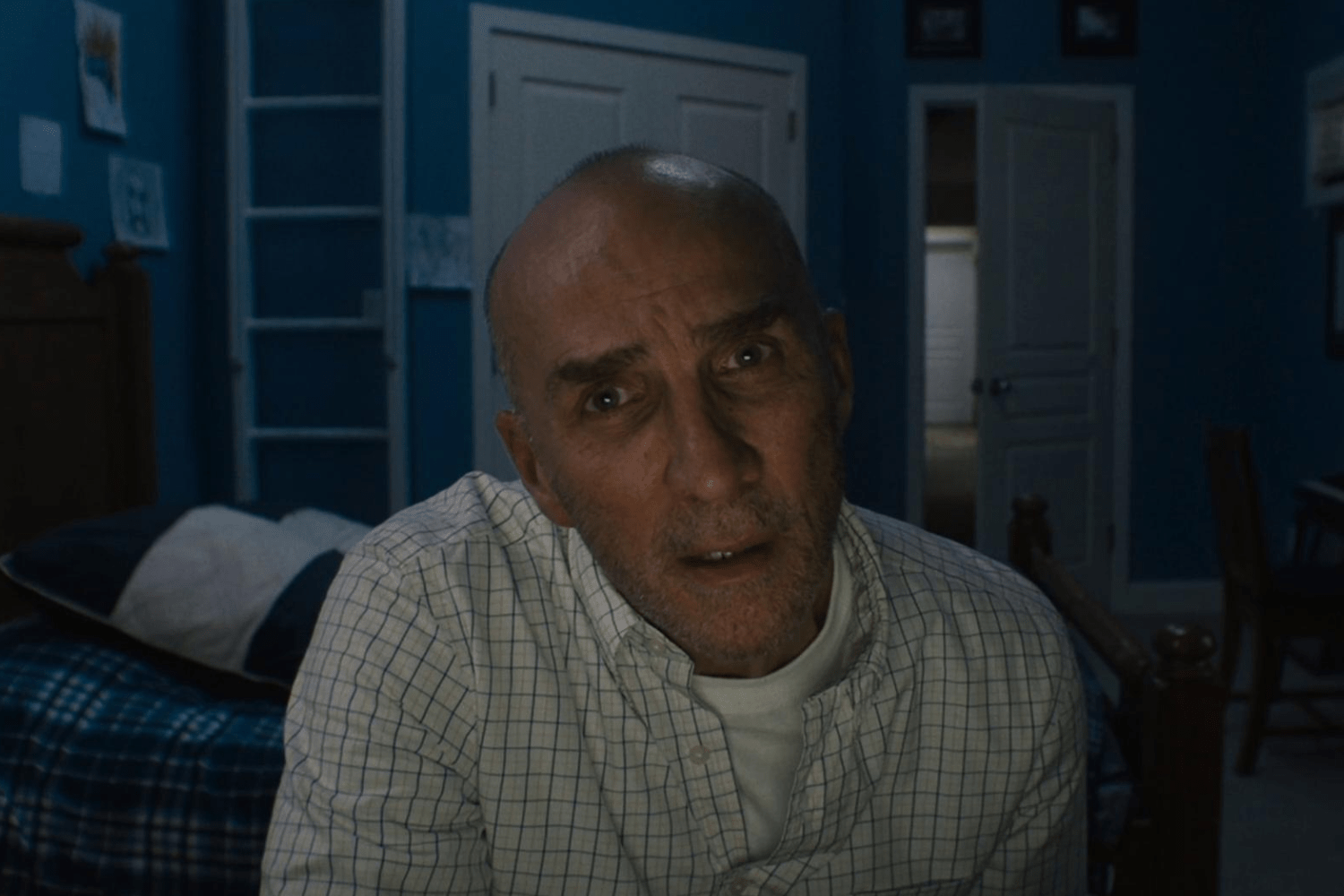Editorials
Park Chan-wook’s ‘Stoker’ Turns Prey Into Predator
Uterus Horror is a subgenre of films that focuses on the experience of growing up with a female gender expression. These films capture the act of becoming an adult and coming into your sexuality, using horror to emphasize and/or act as a metaphor for those experiences. Columnist Molly Henery, who named and defined the subgenre, tackles a new film each month and analyzes how it fits into this bloody new corner of horror.
May 2nd, 2023 | By Molly Henery

With many Uterus Horror films, there is a common theme of a young woman being forced to suddenly grow up and decide the kind of person she wants to be. There’s an awakening inside, something that was previously dormant. But what is awakened is not always good. This is what viewers witness in the 2013 film Stoker.
Stoker is the English-language film debut of legendary director Park Chan-wook (Thirst, The Handmaiden). This is also the screenwriting debut of Wentworth Miller, who is better known as an actor in projects such as Prison Break and Resident Evil: Afterlife.
Stoker tells the story of India (Mia Wasikowska). India is a very unique young woman. She is only really close with her father (Dermot Mulroney), generally preferring to be on her own even amongst her peers. She also has a very acute sense of sight and hearing that allows her to perceive things others cannot. Her classmates all think she’s a freak who hates to be touched, and her own mother, Evelyn (Nicole Kidman), seems to agree.
On her eighteenth birthday, India loses her father in a tragic accident. In the aftermath, India discovers her father had a brother she never knew about. Uncle Charlie (Matthew Goode) appears at the wake, and Evelyn invites him to stay at the house. It’s immediately evident Charlie is drawn to India, but India is wary of him at first, sensing there is something off about this mysterious man.
India goes through many changes in a short amount of time, all of which are triggered by a combination of her birthday, the loss of her father, and the appearance of Charlie. While all of these things throw her world into chaos, it’s what happens next that really alters her way of life. The first major change we see in India occurs after she discovers the body of the family housekeeper in the basement freezer. It doesn’t take long for India to realize Charlie killed the woman, and that he wanted India to find the body. While most people would be horrified at this, India seems more intrigued. It’s also after seeing the body that India appears to gain a new level of confidence; a group of bullies confronts India after school, and instead of ignoring them like she usually does, India stabs one of them in the hand with a pencil. This is the first glimmer of the animalistic predator inside India trying to get out.
Playing into that animalistic side, Charlie also creates sexual competition between mother and daughter. We’ve seen such themes in other Uterus Horror films, but there is something more deadly about this bizarre triangle. Not long after India finds the housekeeper’s body, she is playing the piano when Charlie sits next to her, and they begin to play a sexually-charged duet. India is very clearly getting sexual pleasure from this interaction, but Charlie abruptly stops playing just before “completion,” seeming to intentionally cause India sexual frustration. Later, Charlie seduces Evelyn, knowing India is watching, in an attempt to make India jealous and arouse sexual desire within her.
In a way, it works. India runs off and finds the one boy at school whose been nice to her, Whip (Alden Ehrenreich), flirting with him and even aggressively kissing him, before deciding it isn’t what she wants. Unfortunately, Whip isn’t as nice as he seems and doesn’t intend to stop. He attempts to rape India, yet Charlie isn’t far behind. Charlie hits Whip over the head and uses his belt (which was formerly India’s father’s belt) to restrain the teenager, offering him to India. When Whip almost escapes and attacks India, Charlie strangles the kid with his belt until his neck snaps. After burying the body, India goes to shower and at first seems disturbed by what happened, crying, but that quickly changes as she touches herself while replaying Whip’s death in her head.
Whip’s death is a major turning point for India. Not only does she realize there is something inside of her that takes pleasure in death, but she learns much of what she thought she knew about her life was a lie. Every year for her birthday, she would find a hidden box with the same pair of shoes sized up as she grew. She’d always thought they were from her father, but she learns the housekeeper was the one to hide them on Charlie’s behalf, while also keeping Charlie informed of India’s life. India also finds hidden letters Charlie had written her throughout her lifetime. In each one, he talks about the amazing places he’s writing from and interesting things he’s doing—but India learns he wrote them all from a mental institution after he buried his younger brother alive as a child.
Worst of all, India finally realizes Charlie murdered the housekeeper, his aunt, and his own brother because they threatened to expose his secrets and keep him away from India. All Charlie has ever wanted was India because he’d known they were the same and not just in their enjoyment of death—they also have the same heightened sense of sight and hearing. He waited patiently in that institution until the day India turned 18 so he could finally be with her.
India is forced to come to terms with so much in quick succession. She knows she is very much like her uncle. Yet her father also clearly knew that as well. India finally understands why he would always take her out hunting, even though he didn’t seem to care for it. He used to tell her, “Sometimes you need to do something bad to stop yourself from doing something worse.” It wasn’t until Charlie showed up that India understood what her father meant. He took her hunting to help her get the thrill of the kill without harming people. With her father wanting her to live life one way, and now Charlie trying to make her live a different way, it’s up to India to decide what’s best for her.
In the climax of the film, as they plan to leave town and avoid unwanted police attention, Evelyn catches the pair in an intimate moment. The competition Charlie created between these women makes Evelyn’s first reaction to lash out at her daughter, saying truly horrible things to her. Charlie seduces Evelyn one last time, only to begin to strangle her with his belt. Charlie calls to India, wanting her to watch and enjoy Evelyn’s death, but India is not as much like Charlie as he thought. India comes down the hall, hunting rifle in hand, and shoots Charlie. She leaves her mother alone in the family home, taking Charlie’s money and car, and sets out to start a life of her choosing.
The final shot of India is such a powerful image. She is shown standing tall, confident, and deadly, like a true predator. She wears her mother’s blouse, her father’s belt, and the final pair of shoes from Charlie. The shoes had always been classic, black and white oxfords, but for her eighteenth birthday, he gave India a pair of crocodile skin heels. The change in style signifies her transition from childhood to adulthood, but the crocodile skin also signifies that deadly animal inside India. By incorporating a piece of clothing from each of the adults that impacted her life, India is letting the audience know she is paving her way with lessons she learned from each of these people. It also tells us, she is going to decide who she wants to be and how she will live.
Throughout Stoker, Chan-wook creates a fascinating juxtaposition. When looking at the film, there is a sense of luxury and order with the clothing, sets, and beautiful characters. All of this seems counter to the horrific events and animalistic nature each Stoker family member exhibits. It’s a stunning illusion that speaks to our basic instincts, no matter how civilized humans convince themselves they are. Even the final scene of India in her mother’s blouse and crocodile heels shows how elegant she appears on the outside—as she’s killing a man threatening her way of life, as any animal would.
This theme of human nature being animalistic is threaded throughout the film. India’s Uterus Horror journey begins on her eighteenth birthday because that is the moment her inner animal comes to the surface. The entire film shows the shift in India from innocent prey to dangerous predator. In fact, she is an apex predator. She’s smart, cunning, and has heightened senses, but her outer appearance makes her prey think she’s not a threat, which is why she’s the most dangerous predator of all.
While Charlie helps coax this side of India out, it was always part of her. From creating the sexual competition between India and Evelyn to showing India the sexual pleasure that comes from killing, it would be easy to perceive this as a story of a man manipulating a young woman to become something dangerous. That is until India chooses to kill Charlie to save Evelyn. India has always been dangerous, which is why her father took her on those hunting trips and tried to keep her bloodlust satisfied, so she wouldn’t hurt another human being. It’s true that India’s father, mother, and uncle all influenced the woman she becomes by the end of Stoker, but she balances what she learned from each person to forge her own path in life.
Stoker combines many of the best themes commonly found in Uterus Horror films. It takes the story of a young woman becoming an adult, who’s seen by the world as a strange outsider and incorporates horror elements that emphasize the dark maturation. It’s a layered transition for our protagonist that allows viewers to connect with the film on personally unique terms. India’s story is an evolution from childhood to adulthood, from prey to predator, as well as an exploration of her sexual awakening with a wicked bite.



